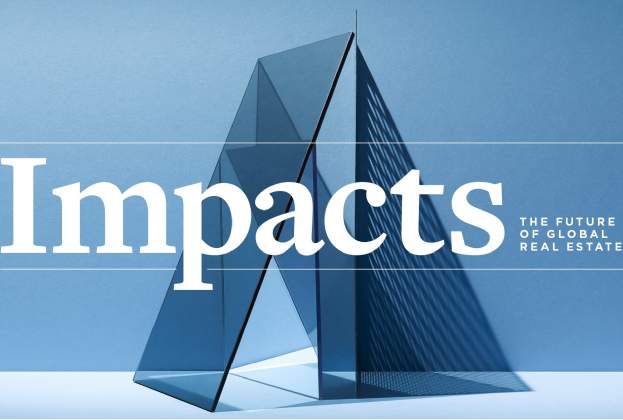We are fielding an increasing number of questions from our clients about what support and benefits they can seek and may be entitled to in Dubai from their landlords.
Below, in question and answer form, is a discussion of the availability of rent relief for commercial office tenants in Dubai, outside of the DIFC , whose business may be directly affected by COVID-19.
Q1. Are there any new laws that suspend rent or otherwise protect commercial tenants?
There are no new laws, regulations or resolutions currently suspending rent or otherwise protecting commercial tenants (outside of the DIFC) in Dubai.
Q2. What benefits can I ask my landlord for and is there an obligation for them to provide them i.e. refunding my security deposit, reducing my rent, giving me a rent free period, cancelling my lease early etc?
Without intervention from the Rental Dispute Settlement Centre in Dubai (“RDSC”), or where the lease does not contain relevant rent abatement provisions, the parties must reach a mutual agreement for any such concessions. There is no automatic right for the tenant to obtain or obligation for the landlord to give, any such concessions. That said, there are currently lots of examples in the media in relation to the types of concessions that landlords and tenants have mutually agreed (especially in a commercial context) including:
- Rent free periods
- Rent payment deferment
- Reduction in rent
- Payment by greater number of instalment (e.g. monthly instead of quarterly)
- Waiver of early termination penalties
- Full refund of security deposit where the lease has been terminated early
Q3. Do I have any redress to the RDSC to review my situation if I cannot get the cooperation of my landlord?
Yes, disputes should be settled by way of filing a claim in the RDSC for the court to decide what a fair rent would be in the circumstances in accordance with Art. 249 of the UAE Civil Code, and/or whether the tenant would be entitled to be excused from its obligations under the lease by seeking early termination. Each case will be determined on its own particular facts.
Q4. My landlord is asking for proof of financial hardship before they will consider my application for rent relief measures. Do I legally have to provide this? If so what level of proof would be considered reasonable?
Although not legally compulsory to provide, it is reasonable for a landlord to expect to receive sufficient evidence to support a tenant’s claim that the Covid-19 situation has caused such financial hardship as to require relief from payment of rent. However, that information should be provided to the landlord on a strictly confidential basis and only so far as is necessary to prove the tenant’s case. A letter from the company’s auditor expressing e.g. the percentage in downturn of business and expected profit/losses should suffice. Provision of full financial statements for the tenant’s business should not be necessary.
Q5. So should I just pay my rent? What will happen if I do not?
The tenant’s position is more tenable if there is a possibility of paying at least some of the rent. This shows that the tenant is acting in good faith in relation to its payment obligations as required under the Civil Code at Art. 246. However, a claim should be filed at the RDSC as soon as is reasonably possible to ensure that the case is dealt with quickly, and to show the RDSC that the tenant has been as proactive as possible in resolving the dispute.
Q6. My lease contains a force majeure clause. If I can’t use my space because of a government-mandated prohibition of my business activity and/or my whole team need is from home, does that clause give me the right to suspend rent payments?
In terms of the force majeure clause in the lease, it depends upon the specific wording as to whether or not the contractual force majeure provisions can be relied upon to seek the suspension of rent payments, and the facts of each case will be an important factor. In addition to the Landlord and Tenant laws applicable in Dubai and regardless of contractual provisions, UAE Federal Law No. 8 of 1985 - “the Civil Code” provides possible relief in a variety of ways.
- Where performance of the contract is wholly impossible - Art. 273(1) of the Civil Code states that:
“In bilateral contracts, if a force majeure arises that makes the performance of the obligation impossible, the corresponding obligation shall, be extinguished and the contract ipso facto rescinded.”
- Where performance of the contract is partially impossible - Art. 273(2) of the Civil Code states that:
“If the impossibility is partial, the consideration for the impossible part shall be extinguished. This shall also apply on the provisional impossibility in continuous contracts. In both instances the creditor may rescind the contract provided the debtor has knowledge thereof.”
Force majeure clauses are generally interpreted in a fairly restrictive way where a party wishes to rely on the clause. Furthermore, the event must have been unforeseeable and unavoidable to qualify as a force majeure event. Art. 273 deals with those circumstances where the lease would be impossible to perform as a whole and also where it is partially impossible to perform (e.g. during the lockdown period in Dubai, rather than for the whole term of the lease).
The RDSC will interpret the clause in the lease by reference to the plain and simple meaning of the wording of the clause. As indicated in Art. 273(2), if a tenant intends to rely on a contractual force majeure provision the contractual notice provisions within the lease must be adhered to in order to effectively notify the landlord of the tenant’s reliance on the force majeure event.
Where there is no such contractual provision, written notice should still be provided by the tenant to the landlord in any event.
In addition to granting relief, and where there are no legislative provisions or contractual provisions to the contrary, the Civil Code also provides a possible defence against liability for losses in certain circumstances where one party to the lease is seeking relief for a force majeure event.
- A defence to liability under the contract? – Art. 287 of the Civil Code;
“In the absence of a provision in the law or an agreement to the contrary, a person is not liable for reparation if he proves that the prejudice resulted from a cause beyond his control such as a heavenly blight, unforeseen circumstances, force majeure, the fault of others or of the victim.”
- Was the cause of the impossibility of performance of the lease beyond the tenant’s control? - Art. 472 of the Civil Code.
“A right is extinguished if the debtor establishes that its performance has become impossible by reason of a cause beyond his control.”
Art. 472 relates to general rights of the debtor and the RDSC may also consider this provision in addition to the provisions of Art. 273.
Q7. My lease provides that if building services or access are interrupted for more than a specified period of time, I am entitled to compensation. Does this mean I can stop paying rent and service charge?
If there is a rent abatement provision within the lease the RDSC would look to see whether the services or access are disrupted due to the force majeure event or the effects of the force majeure event, and it will depend on the individual circumstances of the situation and the specific wording of the contractual provision whether these are actually “interrupted” or not. Unless the lease provides to the contrary, the rent and service charges should be paid by the tenant until the RDSC makes a decision on the matter.
Caveat & Conclusion
Covid-19 may well be deemed to be an unavoidable and unforeseen event by the RDSC, but whether it qualifies as a force majeure event depends on the individual circumstances and facts of each case where a tenant seeks to rely on force majeure for relief under the lease.
It is in the interest of both the landlord and the tenant to try to negotiate a mutually acceptable compromise in relation to relief under a commercial lease during these difficult times. In cases where the tenant has to revert to the RDSC for necessary relief, the landlord may find that the relief granted is more detrimental to the landlord than anything which could have been agreed between the parties.
The current status of the commercial rental market is likely to change very rapidly in the next few months with the possibility of government imposed resolutions playing a very real factor in how those changes play out. It is very much a case of “watch this space” in the Dubai commercial rental market.
Savills is available to help its clients deal with the effects of COVID-19 on their office or industrial leased premises. This white paper deals with only one aspect of that topic and is correct as at the current date of 22 April 2020, so please contact the Dubai team for any further support or questions.
Legal Advice provided by:
Nichola Reece-Burton
Partner|Head of Litigation and Dispute Resolution/Real Property
James Berry & Associates Legal Consultants
Tel: 050 953 1372
nichola@jamesberrylaw.ae; www.jamesberrylaw.com

.jpg)

